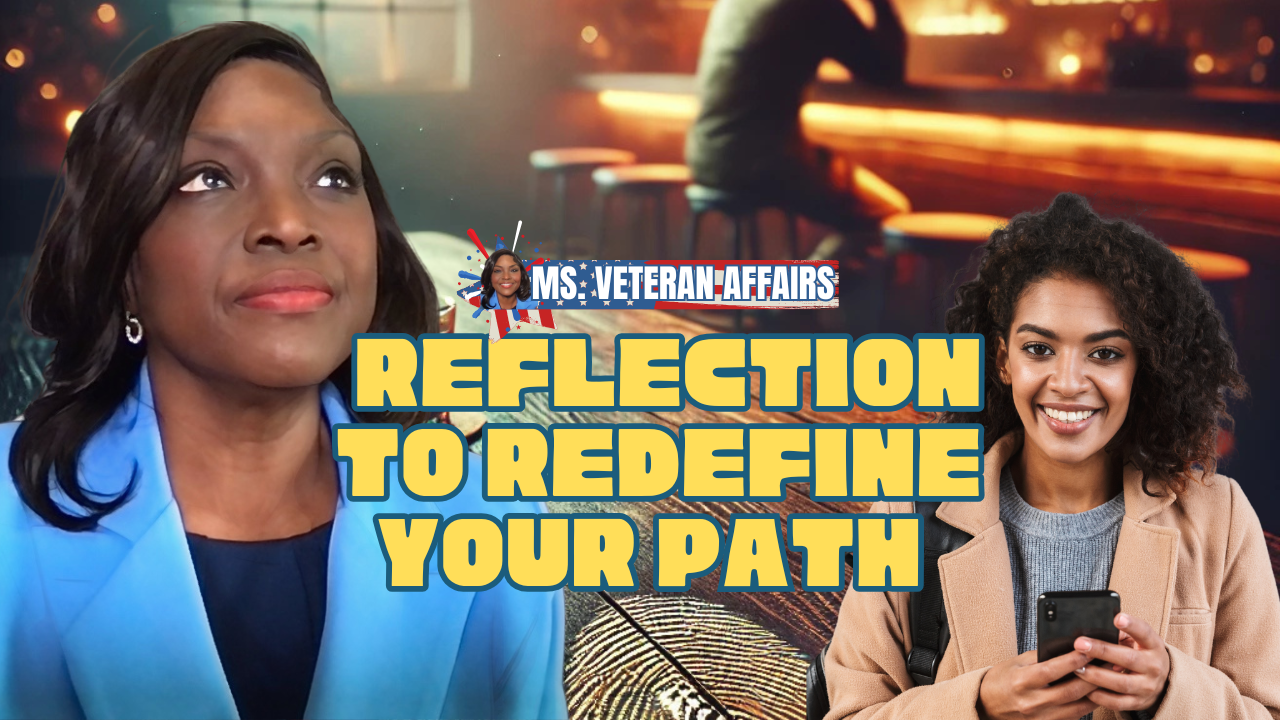Raising Resilient Kids in a Military Household
Mar 27, 2025
 Ms. Veteran Affairs on Raising Resilient Kids in a Military Household
Ms. Veteran Affairs on Raising Resilient Kids in a Military Household
The knock came late in the evening. I opened the door to find Clara, the eight-year-old daughter of my friend Angela, clutching a stuffed unicorn, her eyes brimming with tears.
“Ms. Veteran Affairs,” she said in a shaky voice, “why does my daddy have to be gone all the time?”
Offering Comfort Through Connection
I knelt to her level, brushing back her wild curls. “Come in, sweetheart,” I said gently, ushering her to the couch. She plopped down, her unicorn clutched tight.
Angela had called earlier, asking if I could watch Clara while she ran errands. I had said yes, but I wasn’t expecting the weight of this little girl’s question to hang in the air like a thick fog.
“Your dad is working very hard to keep a lot of people safe,” I began carefully. “It’s not easy for him to be away, but he loves you more than anything. He talks about you all the time, you know?”
Clara looked up at me, her lip trembling. “But I miss him. And what if… what if he doesn’t come back?”
Finding Ways to Stay Close
Her words hit me like a punch to the chest. I had asked myself the same question many times during my husband Joe’s deployments. Taking a deep breath, I said, “Clara, I know it’s scary. I’ve been scared too. But your daddy is really strong, and he’s doing everything he can to come back to you. While he’s away, we can find ways to feel close to him, okay? Want to hear some of the things I used to do with my kids?”
She nodded slowly.
Sharing Stories and Building Bonds
I told Clara about the time Joe had been deployed to the Middle East for six months. Our youngest, Sam, had just turned three, and our eldest, Lizzie, was eight—the same age as Clara.
“Lizzie would write letters every week,” I said. “She drew pictures of our house, her school, and even what she had for lunch. It made her feel like she was sharing her life with her dad, even when he wasn’t here to see it. And Sam? He loved recording little voice messages that we’d send to Joe. One time, he sang the entire alphabet song—backward!”
Clara giggled. “Backward? That’s silly.”
“It was,” I agreed, smiling. “But it made Joe laugh so hard he called us the next day just to say how much he loved it. Little things like that remind your daddy how much you love him, even from far away.”
Celebrating Milestones in Unique Ways
As the evening went on, Clara opened up about her fears. She worried about her dad missing her school recital, her soccer games, and even Christmas. I shared stories of how we celebrated holidays differently when Joe was gone—like the time we made a paper Christmas tree and decorated it with photos of Joe so he’d still feel like part of the celebration.
“Sometimes, we even had two Christmases,” I said. “One on the actual day and one when he got home. It made his return extra special.”
Passing on Resilience
Later, as Clara drifted off to sleep on my couch, Lizzie came downstairs.
“Is she okay?” Lizzie whispered.
“She misses her dad,” I replied softly.
Lizzie frowned. “I remember how hard it was when Dad was gone. I used to cry at night too. Should I talk to her?”
“That’s a wonderful idea,” I said.
The next morning, Lizzie and Clara sat on the floor drawing pictures together. I overheard Lizzie say, “It’s okay to be sad sometimes. But you know what helped me? Thinking about all the things I wanted to tell my dad when he came back. Like the time I got an A on my science test or when I scored a goal in soccer.”
Lessons Learned: Advice for Military Families
That night, after Angela picked Clara up, I sat down to jot down some advice I wished I had known earlier:
- Create rituals of connection. Encourage kids to write letters, draw pictures, or record voice messages. These small gestures keep them connected to their deployed parent.
- Focus on the positives. Celebrate milestones when the parent returns, even if it means having two birthdays or holidays. It gives kids something to look forward to.
- Acknowledge their feelings. It’s okay for kids to feel sad or scared. Let them express their emotions without judgment.
- Build a support system. Lean on friends, family, and community resources to help you and your kids through tough times.
Love Always Finds a Way
As I tucked Lizzie in that night, I thought about how these challenges had shaped her into the resilient young woman she was becoming.
“Mom,” she said sleepily, “do you think Clara will be okay?”
“I do,” I said, smoothing her hair. “She’s got people who love her. And that’s the most important thing.”
Raising kids in a military household isn’t easy, but it teaches them strength, adaptability, and the value of family. And in the end, those lessons will carry them through anything life throws their way.
Because no matter where the journey takes us, love always finds a way to keep us together.
Discussion Questions:
- How does Ms. Veteran Affairs help Clara cope with her feelings of missing her father? What other ways can military families support children during long separations from a parent?
- What are some other creative ways military families can stay connected during deployments or long separations? How do these rituals help children maintain a sense of closeness with their deployed parent?
- How do the experiences of Clara, Lizzie, and other military children shape their resilience? How do the lessons learned from having a parent in the military translate into their ability to cope with other challenges later in life?
- The story emphasizes the importance of acknowledging children’s emotions. Why is it critical to allow children to express feelings like sadness or fear in a military household? How can this openness contribute to a child’s emotional health and development?
- Ms. Veteran Affairs talks about the importance of building a support system. How can friends, extended family, and community resources contribute to the well-being of military families, especially children? How might communities be better equipped to help military families adjust during deployments?
Join our community today!
Gain fresh insights every week—concise, impactful lessons designed to elevate your thinking, enhance self-awareness, and empower purposeful growth.
We hate SPAM. We will never sell your information, for any reason.












